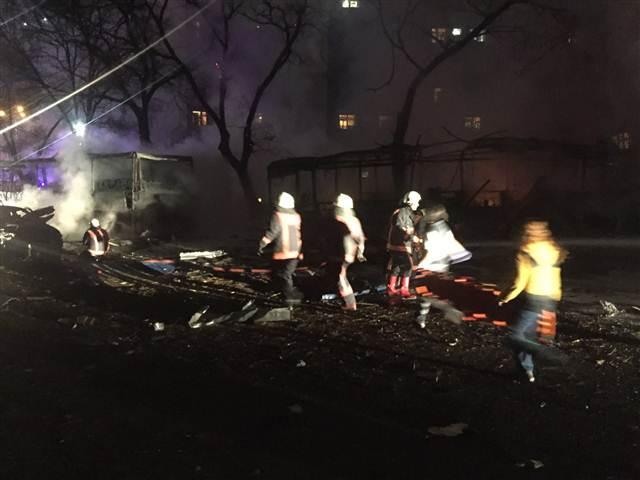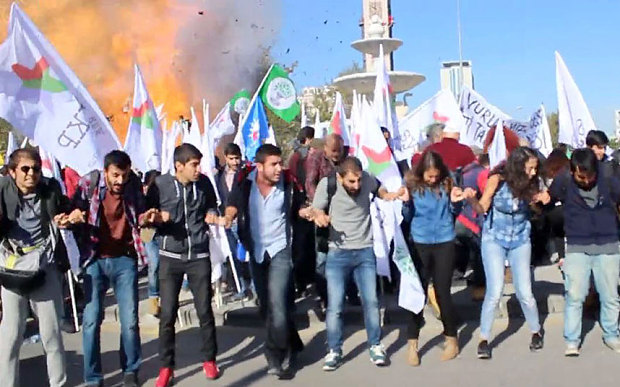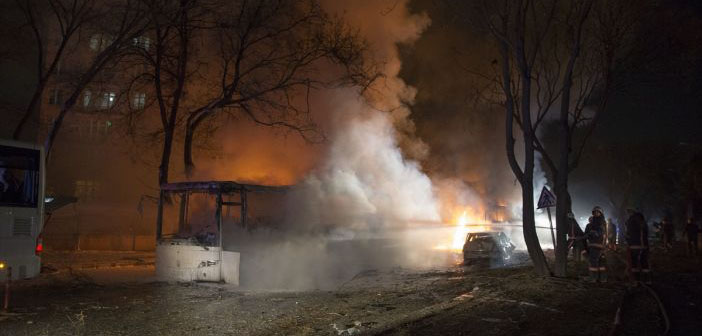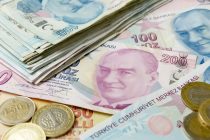A car bomb has exploded in the Turkish capital this evening, killing at least 28 people and injuring 61 others. According to the Turkish authorities, the blast occurred some 300 metres away from Turkey’s military headquarters in Kızılay, in the heart of the city, during rush hour.
It appears the bomb was deliberately detonated as two military buses carrying soldiers passed by. The charred remains of the vehicles showed how they had taken the full brunt of the blast. Civilians are also among the casualties.
A news blackout remains in force across Turkey to prevent misinformation and speculation about the incident. However, the Ankara governor’s office and AKP government spokesman, Deputy Prime Minister Numan Kurtulmuş, have been giving regular updates to the media.
No group has claimed responsibility for the attack. However, Turkey has been hit by a wave of deadly attacks in the past year, the work of various terrorist groups including the PKK, which is fighting for a separate Kurdistan, and Daesh sympathisers in Turkey, who want the country to be part of Daesh’s Caliphate and adopt Sharia law.

A wave of deadly attacks since July 2015
Last month, a Daesh suicide bomber killed 11 people, mainly German tourists, by a popular monument in Sultanahmet – the heart of old Istanbul. In October, more than 100 people attending a peace rally in Ankara were killed by a double suicide bombing by Daesh operatives. Over the summer, some 30 peace activists who had assembled in Suruç, by the Syrian border, were also killed by a Daesh suicide bomber.
Since last spring, there has been a resurgence of violence with the PKK. In September, the terrorists killed 30 soldiers in multiple attacks during a 48-hour period, including remotely detonating bombs as military vehicles passed by the village of Dağlıca in Hakkâri province, near the Iraqi border.
In recent months, Turkish troops have been battling with the PKK in southeast Turkey. It’s turned towns such as Cizre and Sur into war zones: homes and businesses are riddled with bullet holes or have been blown apart, while entire communities have fled, with hundreds of casualties.

Sombre mood in Turkey
The mood in Turkey has turned even darker following the government’s decision to bomb the PKK’s allies, the PYD, in Syria, putting it at odds with its NATO partner the USA who does not view the PYD as a terrorist organisation, but an important ally in the fight against Daesh. The Turkish government is also mulling over a bigger military operation inside Syria with Saudi Arabia.
Many critics believe Turkey’s domestic and foreign policies are putting the country’s stability at greater risk than any time since the founding of the republic in 1923.





